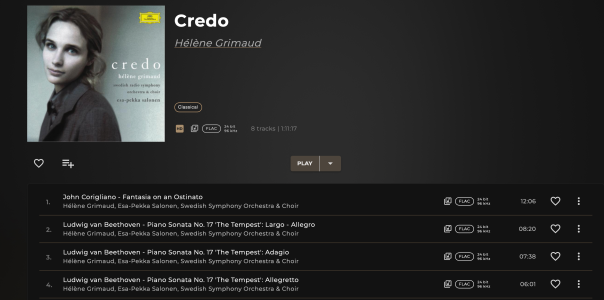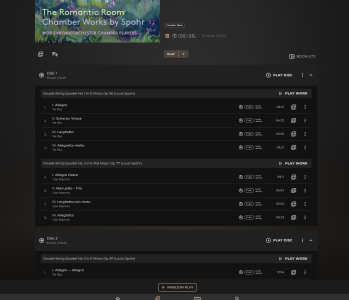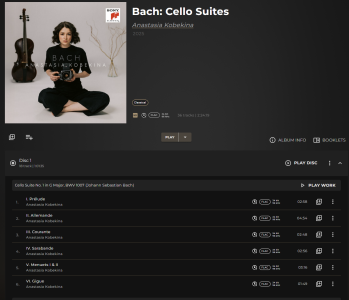The problem with this is that many of us edit our music, moving tracks around in order to free them from the artificial strictures of traditional "Albums" (recordings) and discs. In fact, this is one of the great benefits of digital storage, allowing us to liberate our music from whatever "original state" the record companies chose (often for marketing purposes).Another way Innuos might approach this would be to mirror an existing source, such as the MusicBrainz Classical Style Guide, which provides clear documentation, guidance, and examples on implementation.
I happen to own quite a few "duplicate" copies of recordings: generally a newer remastering vs the original recording. Many of these "duplicates" differ in their track assignments, with the reissues having far more tracks than the originals (my classic example is Charles Dutoit's magnificent Daphnis et Chloë which has but a single track for the entire work!). So my point is that trying to have recording organised according to some online authority is doomed to fail at some point.
Now, whilst I entirely understand that some people might want to keep their music organised the same way as the physical item, the future is - whether we like it or not - one of downloads and/or online, and the concept of physical discs is going to fade fast.
So, if it's a choice of one or the other, I'd opt for the flexibility of "Album | Work | Movement" over "Disc | Track" any day (provided there's an automatic method of reassigning otherwise identical track numbers imported from multi-disc "albums").
Last edited:





